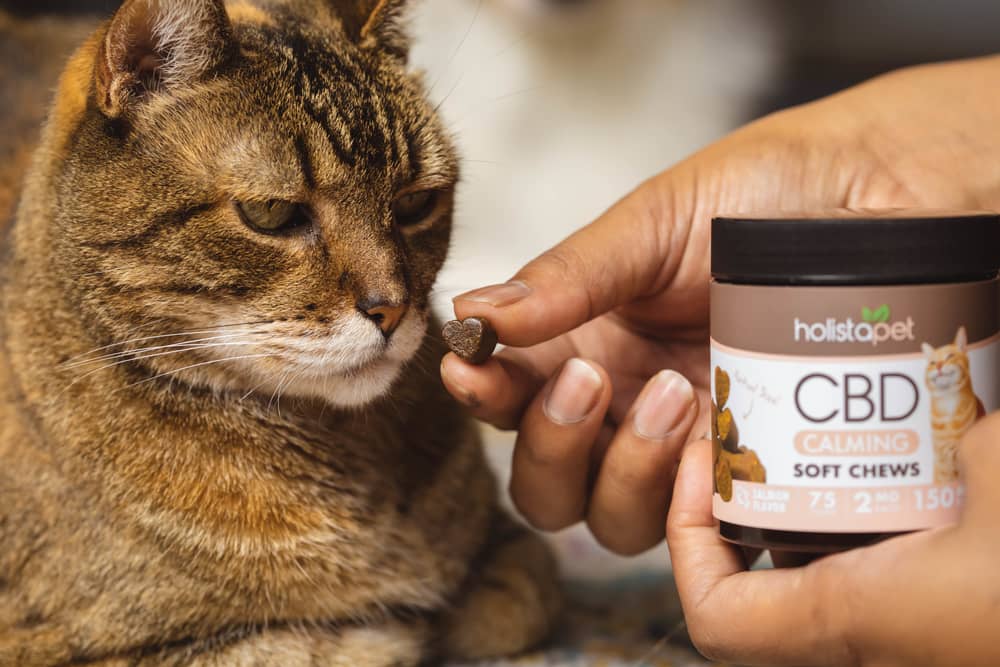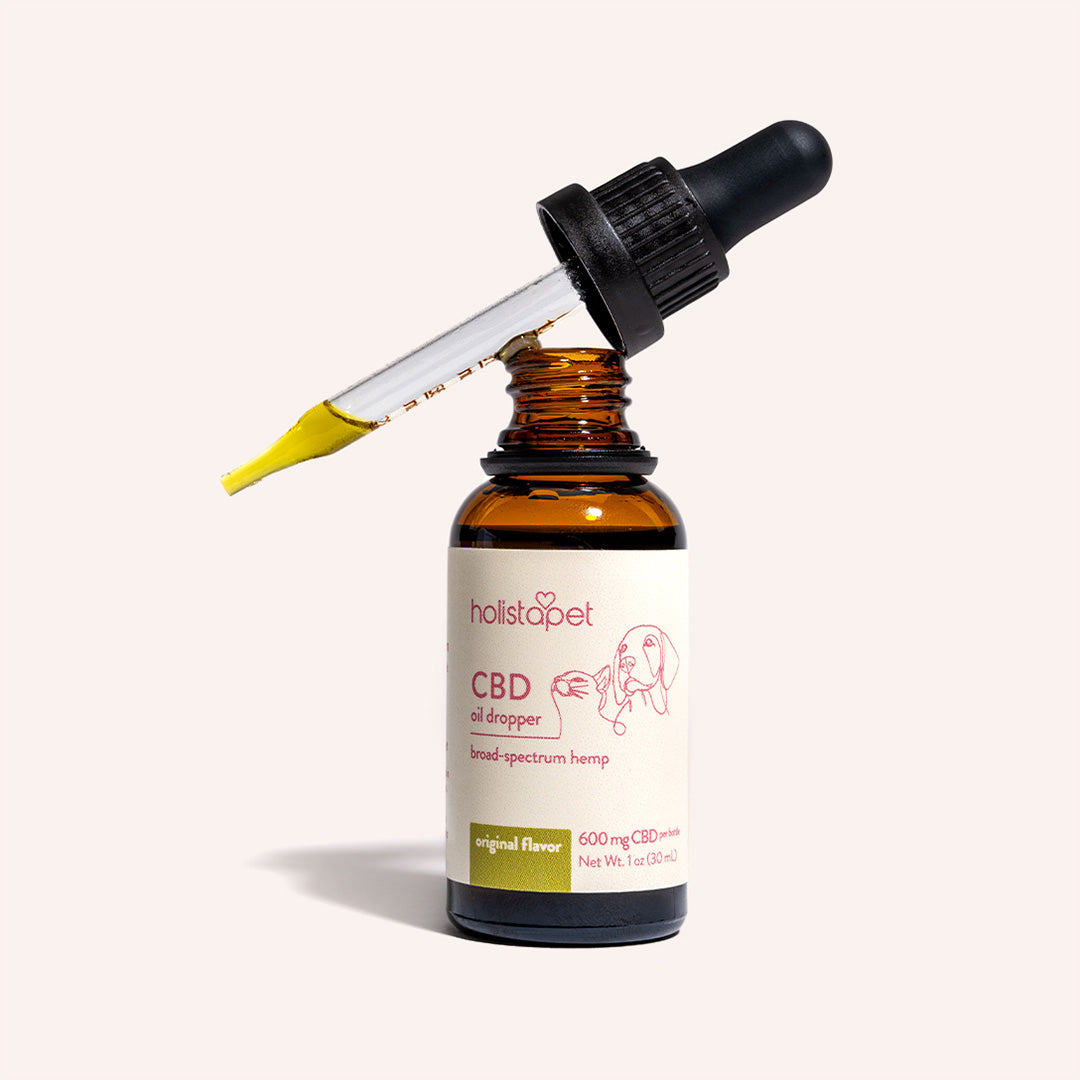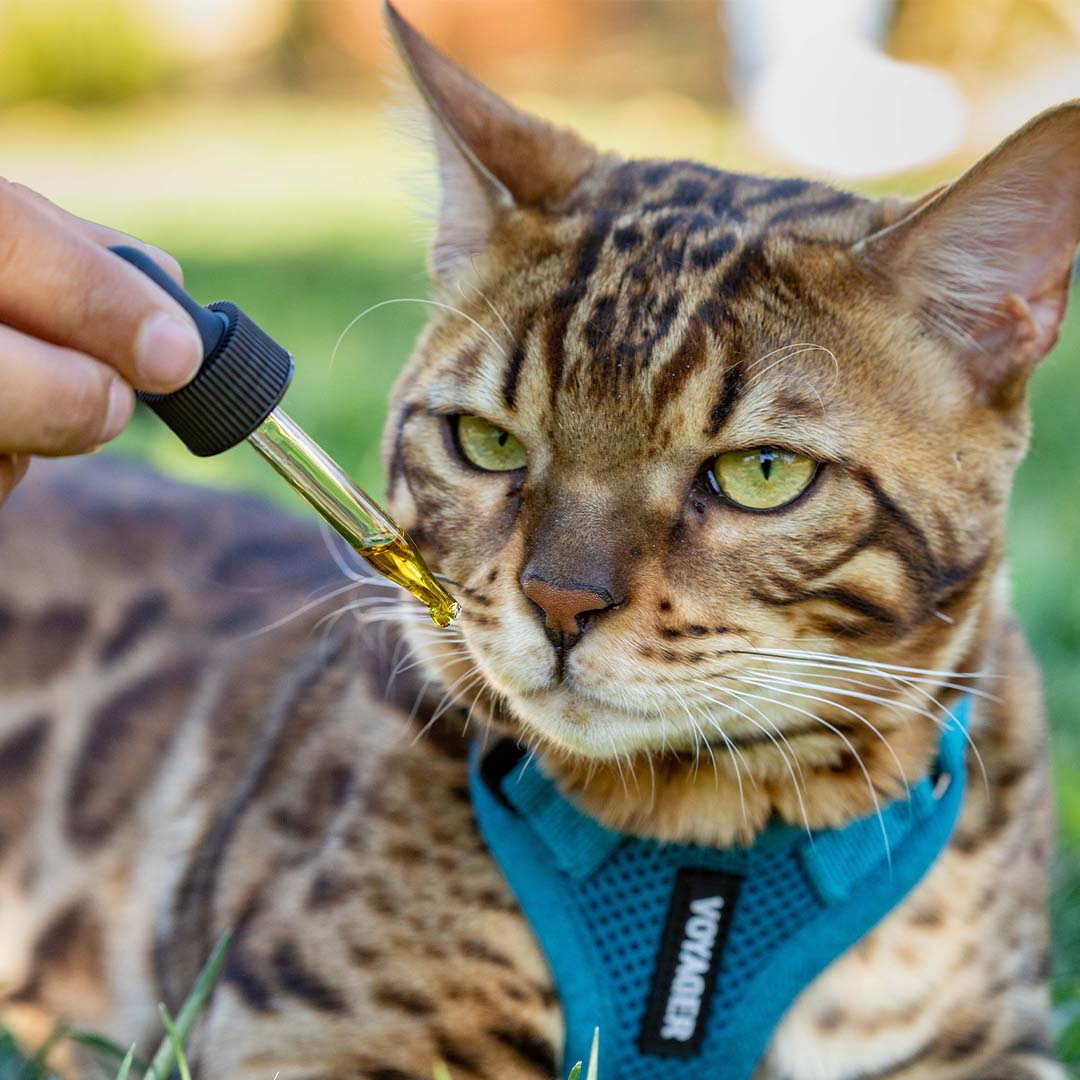Cats are, without a doubt, among the most popular and adorable pets in the world. Sometimes they can be prone to allergies just like us. If you have a cat at home, you are probably aware of the misery and trouble that the symptoms of allergies can cause them. Fortunately, by knowing exactly what to give cats for allergies, you can help them gain relief fast.
You can even find home remedies that can help your feline go back to their cuddly, happy, and healthy self. There are also over-the-counter medications for cat allergies that you can safely give to your pet. Let's get to know more about cat allergies and the solutions through this article.
Can Cats Have Allergies?
Yes. Just like us, cats may also have allergic reactions to a lot of things. It could be from the things they touch, eat, or breathe in. They are prone to developing food, environmental, and seasonal allergies. Cats may be allergic to fleas, too. Their allergies can act up if their bodies become overly sensitive to the things that are in their environment.
While trying to process and eliminate the irritating substances that are triggering for them, they will likely show various symptoms, including runny eyes, itchiness, and sneezing. Most allergies affecting cats are considered mild, but there are still rare cases when the symptoms turn severe and fatal.
This makes it necessary for all feline owners to familiarize themselves with the signs of allergies in cats and what to do about it, so they can prevent and treat the problem before it worsens.

Symptoms of Feline Allergies
For you to act on feline allergies in a timely manner, here is a list of the common signs, symptoms, behaviors, and conditions that your cat may exhibit if they are allergic to something:
- Wheezing, coughing, and sneezing
- Ear infections
- Snoring
- Breathing difficulties
- Diarrhea
- Vomiting
- Runny and itchy eyes
- Sensitive and swollen paws
- Scratching
- Dry, red, flaky, or itchy skin
- Excessive licking
- Constant chewing at the tail or paws
- Hair loss
Watch out for these symptoms so you will be able to give your cat the treatment that they need as soon as possible to help with their allergies.
Figuring Out the Problem
The key to determining what to give cats for allergies is identifying the exact cause. You have to know what triggers the allergic reaction so you can eliminate it and prevent your cat from getting exposed to it. The actual cause of the allergy will also decide the kind of treatment that suits your cat.
Note that the treatment will always vary depending on the specific kind of allergy that has affected your cat. The best approach when trying to help your cat recover is to bring them to the vet to determine the severity of their case. The goal here is to obtain a definitive allergy diagnosis so the cat will receive proper treatment.
Possible Causes
Your cat may be allergic to many things – some of which are those that exist in and around your home. It is important to get to know more about these possible causes, so you will have an idea of what to eliminate once your cat begins to show symptoms of allergies.
Food Allergies
Certain types of food are among the most common culprits of allergies in cats. Food allergies usually manifest in the form of diarrhea, vomiting, and itching. It could happen if you feed your cat the wrong diet.
Note that cats are carnivores, so certain types of food may not be suitable for them. They may also have allergic reactions to treats and foods that you have just introduced to them or any food they got exposed to when you bring them outdoors.
Your cat may be allergic to many kinds of foods, but the usual culprits are animal proteins added to cat foods, like chicken, beef, eggs, and fish. Some dairy products are also among the most common allergens. Corn products can also be a source for allergies in cats.
Environment
Your cat may not also respond well to the objects and substances that they are exposed to in their immediate environment. Some environmental substances that can trigger allergies in cats are pollens, cleaning products, specie plants, dust, perfumes and scents, molds, and litter.
Environmental allergies are both respiratory and contact. This means that this type of allergy usually causes ear infections, coughing, swollen paws, itchy skin, and sneezing. They may also appear as skin irritation to the specific part exposed to the allergen. For instance, if your cat has an allergic reaction to litter, it could be in the form of eczema that may appear in between their toes.
Medication
Cats may also have a pathological reaction to a medication that has been recently given to them. They may have allergic reactions to tick and flea remedies in collar, tablets, or drop forms, as well as anti-fungal agents, anti-inflammatory drugs, and antibiotics. Also, note that the negative reaction to the medication may only occur if it is repeatedly administered to your cat.
If you notice your cat developing rashes and other allergic reactions after administering any medication, it is advisable to stop using it right away. Contact your vet so they will replace the medicine with another one that has a different active substance, one that is safe and mild for your pet.
Shampoos
The cat shampoo you are using may also trigger a negative reaction. There could be something in the shampoo that is causing their allergies. It could be the artificial additives in it, like perfumes, colors, and harsh chemicals. This makes it necessary to pick a hypoallergenic shampoo – one that is gentle for your pet and contains only natural ingredients.
It should also have natural cleansing agents. As much as possible, stay away from products that contain the usual ingredients present in human shampoo, like sodium lauryl sulfate, as they may only cause the skin of your pet to become dry and itchy and trigger other negative reactions.
Insect
Another common allergy in cats is one caused by insects, like fleas. It mainly manifests as a negative skin reaction. Flea bites may also cause cats to exhibit irritating and uncomfortable allergic reactions, like itching, redness, and hair loss. Note that even if your cat is mainly indoors, they may still have flea or insect bites that may trigger an unwanted immune response. Your cat may also be allergic to worms, bacteria, fungi, and viruses.

Remedies
Once you are one hundred percent sure that your cat is indeed dealing with an allergy, it is time to do something about it. Fortunately, there are several ways to treat the problem, but you have to pick a solution that targets the specific cause.
There is a wide range of natural home remedies for cat allergies that you can try before bringing your cat to the vet for allergy shots. Pet allergies are very common and can come about from a variety of situations. Allergic reactions can be caused by food allergies, flea allergies, and seasonal allergies.
Seeing your beloved cat with an allergic skin disease can cause concern and allergy testing at the vet can help identify the cause. A food allergy can cause skin symptoms and a change of diet can clear up the allergic reactions. For a cat with allergies caused by a dusty environment, you can reduce airborne pet allergens to ease the pet allergy.
From food and environment adjustments to CBD, you can alleviate some allergy symptoms from the comfort of your own home. Read on with us to discover the best remedies for your cat!
Important Note: Please remember that these tips and recommendations are not meant to replace professional medical advice. If you believe your cat is experiencing an allergic reaction or other severe allergies, reach out to your vet. A trained medical practitioner will provide you with professional advice to help treat allergies in cats.
Foods and Treats
If your cat has a food allergy, it is advisable to make some changes in their diet. This is especially true if the allergy manifests in uncomfortable and irritating symptoms, like vomiting, bloating, constipation, and diarrhea. It happens when your cat's gastrointestinal tract becomes inflamed or irritated due to a particular food they just ate.
Make sure to change your cat's diet right away if you see some allergy symptoms. If you notice that they are allergic to dry foods, scrutinize the overall quality of the product. It is also highly recommended to change their food and treats and focus more on giving those that contain natural ingredients. This can help prevent negative reactions brought on by additives and other harsh ingredients.
If you still have no idea about the specific foods that trigger allergies in your cat, the safest thing that you can do is to visit your vet. Your vet will perform a food trial to accurately diagnose the specific food that is triggering the allergy. This involves feeding your cat a diet without the protein they previously consumed for around 6 to 8 weeks.
This trial is made possible with the help of a hydrolyzed-protein diet, meaning providing just a small amount of protein to prevent the immune system of your cat from recognizing it. Your vet may also recommend a suitable prescription diet.
Over The Counter
There are also over-the-counter treatments designed to treat allergies affecting your cat. Your vet often prescribes the medication for cat allergies, but you can also solve the problem with the help of over-the-counter treatments. It would be much better, though, to consult your vet, so you can gain additional instructions and advice on proper use and doses. That way, you can reduce or completely eliminate the symptoms of allergy that your cat is dealing with without putting him in danger.
Antihistamines are among the most common over-the-counter allergy treatments that are safe for cats. These medications can solve most symptoms of cat allergy. Note that the symptoms appear when your cat's immune system starts to produce excessive amounts of histamine, so it can offer protection against the offending and threatening allergen. The excess in histamine is the reason behind the symptoms, like itching, skin redness, swelling, and problems in the digestive system such as vomiting diarrhea.
Over 70% of cats with allergies can be successfully treated using antihistamines. You can also improve the effect of antihistamines by combining them with other therapies, like biotin or fatty acids. Common over-the-counter antihistamines that your cat can safely take, provided they are in appropriate doses, are Benadryl, Claritin, Zyrtec, and Fexofenadine.
Again, follow the recommended dosage to prevent any harm. As much as possible, consult a veterinarian as they can provide you with the safest dosing requirements and instructions depending on your cat's weight.
Topicals
You may also want to use topical products, like creams and sprays that can soothe irritated skin. These products can reduce itching and speed up the healing process. Some topical products contain hydrocortisone, a steroid that can lessen swelling.
There are natural products that contain tea tree oil and other calming and soothing ingredients that can solve itchy skin. Some veterinarians may also recommend giving your cat appropriate doses of Omega-3 regularly for allergies. This is a good supplement for your supporting your cat's coat and skin health.
Environment
Making some adjustments to your cat's environment can help when their allergies are triggered by environmental factors. For instance, you have to make sure that your cat is not exposed to an environment filled with dust and dirt.
Double-check the environment first if you plan to bring your cat to a new place. Find out if there are things in there that may harm your pet and cause allergies, including plants, flowers, poison ivy, and other environmental allergens. You can also manage your cat's environmental allergies and make him feel more comfortable with the following:
- Use an air conditioner during the summer months – this is a huge help, especially if the environmental allergen is grass or pollen.
- Wipe their body right away once you detect the presence of grass, pollen, or dust.
- Take your cat out of a room every time you clean or vacuum it. Do not use household chemicals when cleaning your home.
- Avoid using deodorants and harsh perfumes.
- Do not allow your cat to walk in damp areas if they have a negative reaction to molds.
- The goal here is to make your cat's environment clean and safe for them.

CBD Products
Did you know that CBD can be helpful to give cats for seasonal allergies? Since CBD interacts with your cat's endocannabinoid receptors, it also supports your cat's ECS. This is the system that helps maintain many of your furry friend's main bodily systems. This system encompasses the nervous and immune systems, along with many others.
When you give your cat CBD, you're giving them a natural product that'll help:
- Give them a better night's sleep
- Uplift their mood and decrease nervousness
- Boost their appetite and regulate digestion
- Soothe any soreness and relieve discomfort
- Provide them with relaxation
- And more
The skin also has a ton of endocannabinoid receptors — this means that CBD can help with skin allergies, too! Topical products for pets normally include shampoo, CBD oil, and salves, which you can apply to your cat's skin, paws, and other external areas.
What Other Ingredients Do CBD Products Contain?
The best CBD pet products have the best ingredients overall, not just the best CBD. At HolistaPet we use natural and organic ingredients to make our CBD products. Our products are also free of GMO, dairy, and gluten.
Our recipes are carefully formulated so that your pet can reap the most benefits. That's why we use ingredients like:
- Hemp seed oil or powder. Hemp seed is a great carrier for CBD and makes CBD easier for your pet to digest! Not only that, but it's also a nutritious food that has a ton of benefits — it can help ease worried thoughts, relieve aches, help with digestion, and more.
- Broad spectrum CBD. Broad spectrum CBD contains all of the beneficial cannabinoids naturally found in hemp, without any THC. This means you won't have to worry about your cat feeling too good after consuming our CBD cat products.
Final Thoughts — What to Give Cats for Allergies
You can't completely prevent your cat from developing allergies. However, there are things that you can do to somehow limit their exposure to harmful allergens. You should keep your home clean, use unscented and dust-free cat litter, avoid the excessive use of deodorizers or perfumes, and do other measures to prevent your cat from developing allergic reactions. Also, know exactly what to give cats for allergies if they show symptoms. To guarantee their safety, contact your veterinarian right away and ask for advice.








![Probiotics For Dogs [Soft Chews]](http://www.holistapet.com/cdn/shop/files/Probiotic-Infographic-1_472d7a29-e30c-435a-9638-1365d8c3a9f9.jpg?v=1725384841&width=104)















![What To Give Cats for Allergies [Remedies for Common Issues]](http://www.holistapet.com/cdn/shop/articles/46.jpg?v=1718214000&width=1500)
![Cat Hiding [Why Felines Hide & How To Get Them to Reappear]](http://www.holistapet.com/cdn/shop/articles/50.jpg?v=1718214076&width=500)













Leave a comment
This site is protected by hCaptcha and the hCaptcha Privacy Policy and Terms of Service apply.